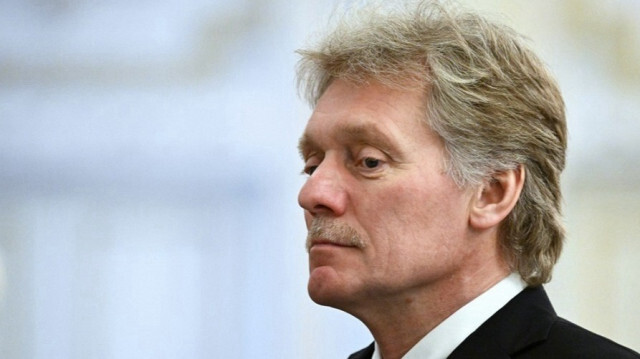
Such incidents do not contribute to advancement of peace process, says Kremlin spokesman
The Kremlin on Tuesday called on Azerbaijan and Armenia to show restraint as cross-border fire re-escalated tensions in the region.
“Of course, this is alarming news coming from the line of contact, we call on both sides to show restraint, to avoid in every possible way any actions that the other side may consider provocative, spokesman Dmitry Peskov told reporters in a press briefing in Moscow.
Expressing that Russia will watch developments in this regard “very carefully” and continue its contacts with both sides, Peskov said such incidents do not contribute to the advancement of the peace process.
Azerbaijan's State Border Service said on Monday that one of its soldiers was injured due to shots fired by Armenian forces toward the country's southwestern Zangilan district.
Baku on Tuesday said it carried out a "revenge operation" in response, destroying the combat post from where its servicemen were fired upon.
According to Armenia's Defense Ministry, four of its servicemen were killed and one injured.
Relations between Azerbaijan and Armenia have been tense since 1991, when the Armenian military occupied Nagorno-Karabakh, a territory internationally recognized as part of Azerbaijan, and seven adjacent regions.
Azerbaijan liberated most of the region during the war in the fall of 2020, which ended with a Russian-brokered peace agreement, opening the door to normalization.
Baku initiated an anti-terrorism operation in Karabakh last September to establish constitutional order, after which illegal separatist forces in the region surrendered.
- Russia ready to support constructive actions on Gaza
Peskov said Russia is ready to support any actions to free hostages and stop the conflict in Gaza, where Israeli forces have killed more than 28,000 people.
“We are ready to support any action that will lead to the release of hostages and a cease-fire ... of course, actions should be constructive,” he said.
Peskov said the actions should be aimed at finding a comprehensive solution to the conflict within the framework of international law and previously adopted resolutions of the UN Security Council.
Mediators including the US, Qatar and Egypt are negotiating on a deal for cease-fire in Gaza, and the release of over hostages held by Hamas.
The war began after the Oct. 7 offensive by Hamas, in which some 1,200 people were killed, and around 240 taken as hostages.
About half of the hostages were released during a weeklong November cease-fire in exchange for Palestinian prisoners.
Israel stands accused of genocide at the ICJ, which in an interim ruling this January ordered Tel Aviv to stop genocidal acts and take measures to guarantee that humanitarian assistance is provided to civilians in Gaza.
Hello, the comments you share on our site are a valuable resource for other users. Please respect other users and different opinions. Do not use rude, offensive, derogatory, or discriminatory language.
The floor is all yours.








